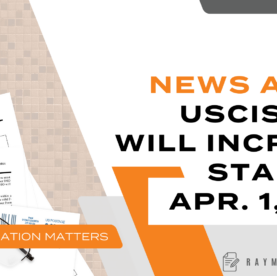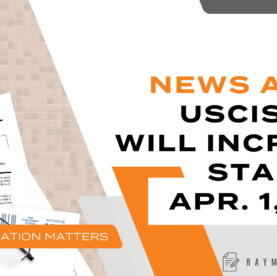Refugees in Lehigh Valley Struggle to Get COVID-19 Vaccine
The past year was unique for everyone battling the pandemic, but it was especially challenging for refugees who had to acclimate to a new country while also navigating the pandemic. Many immigrants were left with little choice but to take up jobs with a high risk of contracting the infection or jobs where social distancing is impractical.
Immigrants were hired to clean hospitals with COVID-19 patient rooms. Kibrom Tefsu, a refugee employment specialist with Bethany Christian Services, felt that immigrants were grateful to have found stable employment even amidst the pandemic, immaterial of the risk of infection. A nonprofit organization that helps refugees relocate within the United States, Bethany Christian Services has its office in Allentown.
Immigrants Reluctant to Get the COVID-19 Vaccine
Despite their front-line jobs, many immigrants have been reluctant to take the COVID-19 vaccine. Tefsu said that some feared the side effects the vaccine may have, while some doubted its efficacy.
Lehigh Valley health officials noted that among the other issues that stopped immigrants from taking the vaccine was the language barrier, which deterred the health officials from educating immigrants about the need for widespread vaccination.
Officials felt that immigrants are also hesitant to rely on the vaccine because of the racism that people have experienced in the health care system. Health officials from St. Luke’s and state officials met the immigrant community to educate them about the vaccine.
Problems Immigrant Refugees Face
The most fundamental challenge for immigrants is the language barrier. They also face many other hurdles, such as requesting time off from work and finding transportation to make it to the hospital or camps for vaccinations.
Tefsu, who comes from Eritrea in East Africa, remembers when the first immigrant working in the hospital got vaccinated. Many others kept flocking around him for the next two weeks, constantly checking his well-being.
Yet another challenge in vaccinating immigrants is that they want to remain unnoticed, said Crayon Egli, who also works at Bethany Christian Services. “They are willing to be helpful to do what they can, and they will stay unnoticed. Some of that I think is a little bit of fear,” she said. “They don’t want to do anything wrong, but they will stay unnoticed, and they won’t be the first in line to be advocating for vaccines.”
Immigration in the Lehigh Valley
According to the Department of Human Services, 26,254 refugees settled in Pennsylvania between 2009 and 2019. The American Immigration Council reported 922,585 immigrants were present in 2018. In 2016, the estimated number of undocumented immigrants was 19% of the immigrant population, or 1,70,000.
Over the years, the Lehigh Valley has become intertwined with many cultures. Immigrants settled there from Central and South America as well as from the Caribbean. There are also immigrants from Europe, Asia, Africa, and the Middle East. The Syrian population has increased in Allentown, with one survey noting there are more than 4,000 Syrians in Allentown – accounting for the third-largest city with a Syrian population in the United States.
Vicky Kistler from the Allentown Health Bureau noted that 60% of Allentown’s population is Hispanic. Many do not speak English. The Bureau has Arabic- and Spanish-speaking employees to help answer the queries of non-English speakers. The bureau is also looking into interactive tablets that can translate a foreign language to English and vice versa.
COVID-19 Vaccine Efforts from the Government and Lehigh Valley Health Bureaus
The Biden administration announced that $250 million will go towards the education and encouragement of the underserved population, including refugees and the homeless, about COVID-19 safety measures. Neighborhood Health Centers of the Lehigh Valley were among the 900 health centers to receive aid from the Biden administration.
The Bethlehem Health Bureau is focused on providing the COVID-19 vaccine to those most vulnerable in the Lehigh Valley, including immigrants, said Kristen Wenrich, the bureau director. “We don’t specifically call out immigrants in our vaccine plan, but they certainly fall within some of the groups we are targeting,” she said. The vulnerable groups the Bureau is targeting include senior citizens, homebound individuals, essential employees, minorities with low vaccination rate, and individuals who lack transportation.
The Bethlehem Health Bureau is coordinating with Bethlehem and Northampton County’s housing authorities, homeless shelters, Meals on Wheels, and Northeast Ministries in the Marvine/Pembroke area to reach vulnerable groups.
Some 1.4 million refugees worldwide are in need of resettlement right now, and nearly 1% of the world’s population is displaced by conflict, said Heather Bert, executive director of Bethany Christian Services.
“If we start doing the vaccine for them (refugees), people might say, ‘They are going to take it away from me,’” Bert said. “They aren’t. If we can help them get the vaccine and they can help clean a patient’s room or put food on someone’s table, that helps people understand who refugees are.”
To learn more about this blog post or if you have any other immigration concerns, please feel free to contact me at rglahoud@norris-law.com or (484) 544-0022.
The post Refugees in Lehigh Valley Struggle to Get COVID-19 Vaccine appeared first on Immigration Law Blog.





